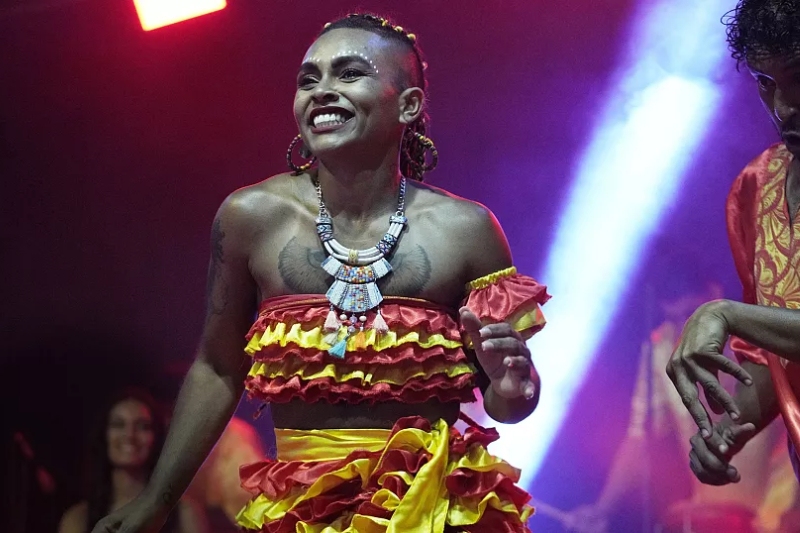In Fernando de la Mora, Paraguay, members of the Afro-Paraguayan community came together to pay tribute to their patron saint, Balthazar, who is one of the Three Kings. The festivities featured dynamic live dancing and invigorating drumming performances.
The annual festival serves a crucial purpose of affirming and celebrating Afro-Paraguayan culture by granting it visibility and emphasizing its significance within the community.
Juan Medina, a talented percussionist from the renowned Kamba Cua ballet group, shared his personal connection to the art form. He revealed that his passion for drumming was ignited during his childhood, as he grew up immersed in the captivating rhythms passed down by his ancestors.
“For us, it holds a deeply special meaning to remember and honor our ancestors who originated from Africa. Every January 6th, we gather together with numerous friends who join us in sharing this celebration,” expressed Benito Medina, the director of Lazaro Medina’s Kamba Cua ballet.
Benito Medina further explained that the Kamba party, deriving its name from the Guarani language and meaning “Black,” serves as an occasion for Afro-descendants from various communities to come together and partake in a magical night of unity and camaraderie.
Keep Reading
Afro-descendants in Paraguay have been an integral part of the country’s history since 1820. Among them are individuals from the Kamba ethnic group, who arrived alongside General José Gervasio Artigas during a time when approximately 50% of the population had African origins.
Upon settling in a suburb of Asunción, these Afro-descendant communities faced significant political changes around 1940 under the leadership of General Higinio Morinigi. During this period, a policy was implemented with the aim of defining Paraguay as a predominantly “white” nation. This policy encouraged interracial marriages as a means to diminish the presence of black people, ultimately resulting in the dispossession of land from the Kamba community.

